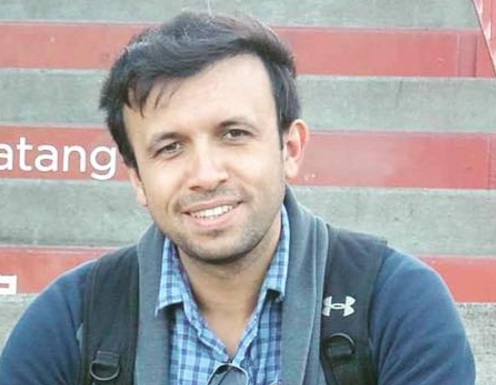Learning Multi-Modal Navigation for Unmanned Ground Vehicles
The Event has been Postponed. Abstract: A robot that operates efficiently in a team with a human in an unstructured outdoor environment must be able to translate commands from a modality that is intuitive to its operator into actions. This capability is especially important as robots become ubiquitous and interact with untrained users. For this [...]
Carnegie Mellon University
Algorithms, Implementation, and Studies on Eating with a Shared Control Robot Arm
Abstract: People with upper extremity disabilities are gaining increased independence through the use of assisted devices such as wheelchair-mounted robotic arms. However, the increased capability and dexterity of these robotic arms also makes them challenging to control through accessible interfaces like joysticks, sip-and-puff, and buttons that are lower-dimensional than the control space of the robot. [...]
Carnegie Mellon University
Social Signal Processing: A Computational Approach to Sensing, Reconstructing and Understanding Social Interaction
Abstract: Humans convey their thoughts, emotions, and intentions through a concert of social displays: voice, facial expressions, hand gestures, and body posture. Despite advances in machine perception technology, machines are unable to discern the subtle and momentary nuances that carry so much of the information and context of human communication. The encoding of conveyed information [...]
Speaker: Jia Deng
Areas of Interest: Artificial Intelligence, vision, knowledge, reasoning Host: Abhinav Gupta Admin Contact: Chris Downey cdowney@andrew.cmu.edu
Carnegie Mellon University
Foraging, Prospecting, and Falsification – Improving Three Aspects of Autonomous Science
Abstract: Robots exploring the subsurface ocean of Europa, for example, may not have reliable communications with scientists on Earth. Robots exploring with unreliable communications must conduct scientific exploration autonomously. Approaches to deliberative and opportunistic science autonomy that work in the laboratory may not work in the field. This thesis presents three algorithms designed to improve [...]
Faculty Candidate: Petter Nilsson
Areas of Interest: Improving design practices and advancing the capabilities of autonomous systems Host: Stephen Smith Admin Contact: Keyla Cook keylac@andrew.cmu.edu
Rendering Material Properties through Touch
Abstract: Humans haptically perceive the material properties of objects, such as roughness and compliance, through signals from sensory receptors in skin, muscles, tendons, and joints. Approaches to haptic rendering of material properties operate by stimulating, or attempting to stimulate, some or all of these receptor populations. My talk will describe research on haptic perception of [...]
Object Detection and Tracking on Low Resolution Aerial Images
Abstract: Object tracking from an aerial platform poses a number of unique challenges including the small number of pixels representing the objects, large camera motion, and low temporal resolution. Because of these unique reasons, low resolution aerial image analysis needs to be tackled differently than the traditional image analysis both in terms of the sensors, [...]







